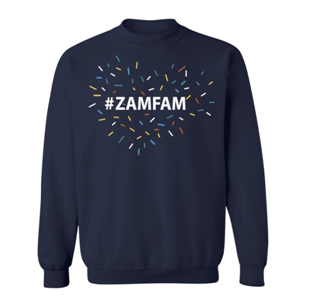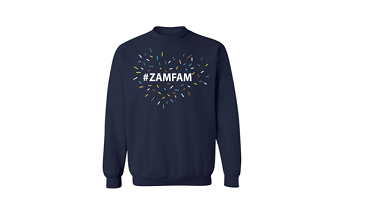Issues On E-Commerce Website Concerning IP Rights
The background of the case is pretty straightforward. The plaintiff is a California-based company that has millions of subscribers on YouTube and other Social Media handles, which is significant to understand the popularity of its various trademarks and copyrights with licenses for various sorts of merchandise. The plaintiff has alleged that the defendants (Redbubble) own an e-commerce website, on which any person can register and sell merchandise. The plaintiff found much merchandise which violated their IP Rights. The plaintiff alleged that even after proper intimation and notice to the defendants, the defendants failed to take steps to prevent further infringement, such as removing the infringing merchandise. Following is a summary of the 4 types of claims which the plaintiff brought to the United States District Court Northern District of California San Jose Division (“Court”) –
1) Contributory Copyright Claims:
In order to establish any “Contributory Copyright Claim,” the plaintiff must prove that:
(a) the defendant has the actual knowledge of the infringing activity, and (b) the actions of the defendant have induced, caused, or materially contributed towards the infringing act. It is important for the defendant to consist of more than a generalized knowledge of the third party’s infringing activity for him to commit a possible and claimed infringement.

2) Contributory Trademark Infringement
The essentials to be fulfilled under Contributory Trademark Infringement are comparatively tricky to establish. At first, contributory trademark infringement occurs if the infringer “intentionally induces” the primary infringer to infringe. Plaintiff did not stand a case under this essential because the First Amended Complaint did not mention the intention behind the alleged act. Therefore, the Court declined the existence of inducement whatsoever.
The second most important essential to be proved was – Whether the defendant had the knowledge of infringement and supplies an infringing product or services to an infringer. The real question is the extent of control exercised by the service provider on its users. As an online marketplace, the service provider must have knowledge of the sale of counterfeit goods on its platform.
Similar is suggested in the case of Coach, Inc. v. Celco Customs Servs. Co., CV1110787MMMFMOX, 2014 WL 12573411, at *17 that the defendant must hold a “particularized knowledge” in order to hold a claim of the contributory trademark infringement claim. It was ultimately observed that the Plaintiffs through their notice did not adequately inform the Defendants by not specifying the products infringing the rights and the titles of the Plaintiff.
Therefore, it was determined by the court that Defendant did not hold any particularized information. The knowledge of the specific information being the most dominating and important factor in determining the claim of contributory trademark infringement, it was held by the court that Plaintiff’s claim did not hold any stand whatsoever.
3) Trade Dress Infringement Claim
The Court, in the present claim, stated that Plaintiff has failed to establish the elements that constitute an infringement of trade dress.
Having stated that the elements of trade dress infringement are as follows:
“(1) the trade dress is non-functional, (2) the trade dress has acquired secondary meaning, and (3) there is a substantial likelihood of confusion between the plaintiff’s and defendant’s products.”
The notice served to the Defendants by the Plaintiffs was clearly not enough because it was incomplete on the face of it. Therefore, the Court has necessitated the presence of “recitation of the concrete elements” as stated in the judgment. It is the duty of Plaintiff to provide for a detailed recitation of all the elements and the appearance of the product which has put the claimed trade dress at issue. Justice cannot be provided merely by attaching hundreds of images in furtherance of the claim.
4) Unfair Competition Claims
Under this claim, Defendant seeks shelter under section 230 of the Communications Decency Act, (“CDA”). The Act is established with the aim to “preserve the vibrant and competitive free market that presently exists for the Internet and other interactive computer services, unfettered by Federal or State regulation.”One understands the specific purpose of the use of the section by reading subsection (c)(1) of section 230 which states that no provider or user of an interactive computer service shall be treated as the publisher or speaker of any information provided by another information content provider.”
Alongside, the Ninth Circuit lays down an immunity test for the service provider. The protection is granted to (1) a provider or user of an interactive computer service (2) whom a plaintiff seeks to treat as a publisher or speaker (3) of information provided by another information content provider.”
Although the plaintiff provided proper case laws to claim how the immunity under Section 230 should not be granted, the court was of the view that multiple courts in the Ninth Circuit have provided immunity to the intermediaries on similar factual backgrounds, claims, and grounds (example – Airbnb and Amazon). Therefore, the claim for Unfair Competition could not succeed.
Therefore, on the aforesaid reasons, the Court grants Defendant’s motion to dismiss all the claims made by Plaintiff against Defendant. Plaintiff was thus ordered to file a fresh and amended complaint within the period of 30 days of the present order.
Author: Saransh Chaturvedi an associate at IP And Legal Filings, in case of any queries please contact/write back us at support@ipandlegalfilings.com.



